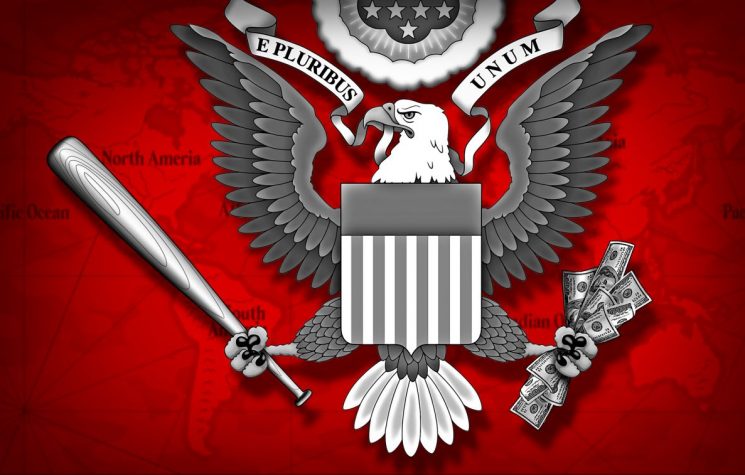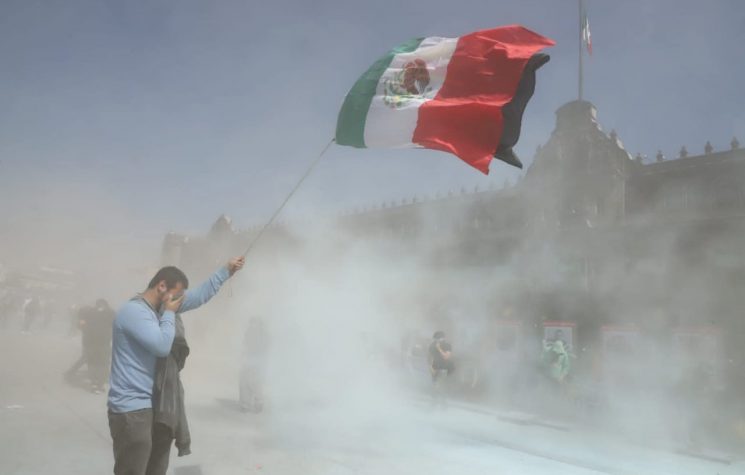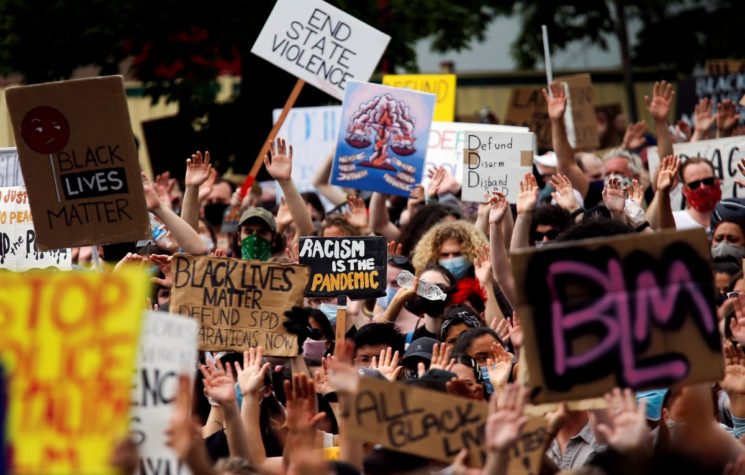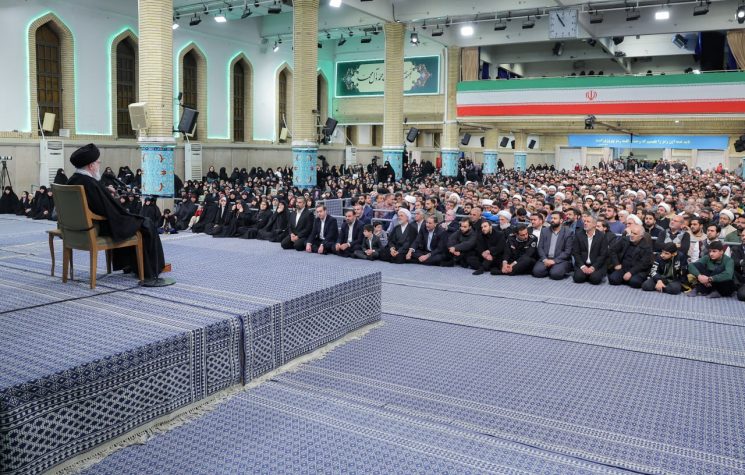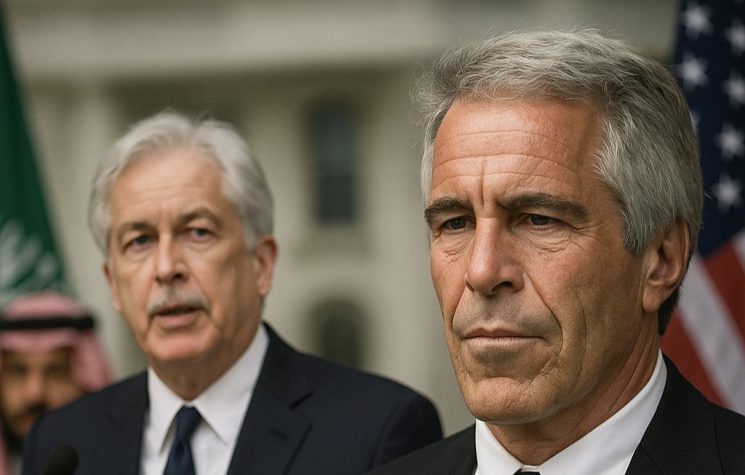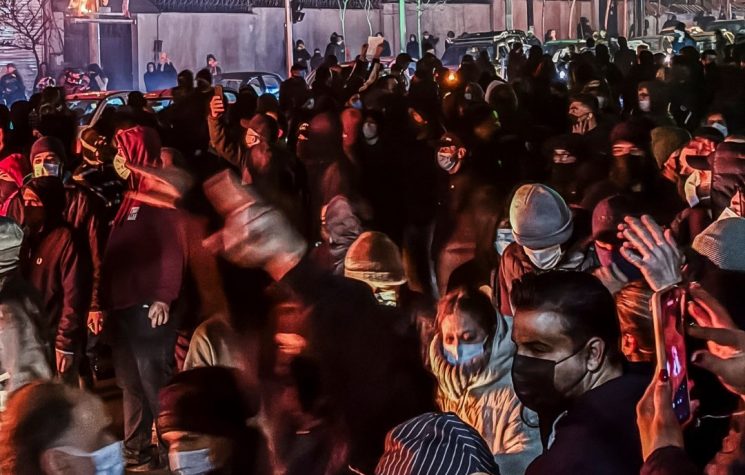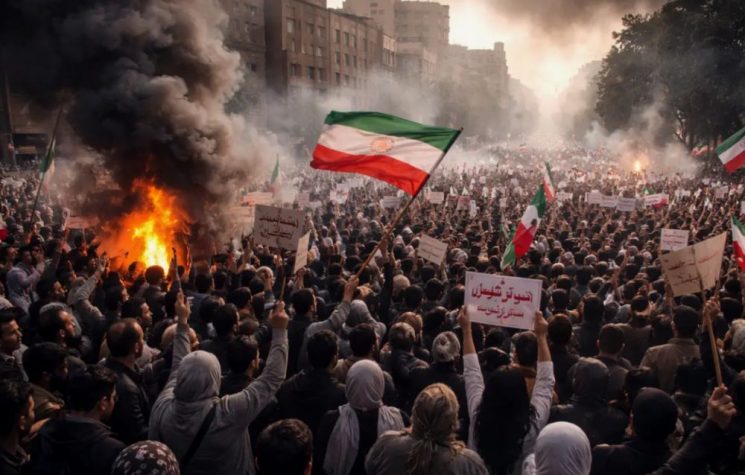As America separates into two distinct substances – one nation dissolving into two – we should perhaps pay more attention to the psychology underlying this segmentation, and not just to its ‘politics’. Clearly, the latter is vital to understanding the U.S. Furthermore, these two U.S. psychic states of mind are playing out across the Middle East and beyond – not so much in a strategic way, but as the projection of inner psyche. This projection seeks to demonstrate its moral validation externally, in a way that cannot be done internally – for the balance of forces domestically is such that neither party can, as they would like, force the submission of the ‘other’ to their worldview; neither can prevail decisively.
Not even the November election will settle matters in any final way. It might, rather, sharpen the contest further.
What are the key vectors to this scission? It is firstly, that in the U.S., ‘facts’ are no longer tolerated as facts. Facts like ideology, have separated into two irreconcilable camps, each at each other’s throats. And, secondly, any authority or sourcing for what is asserted as fact, in today’s world, has long fled the scene. Today we deal only with one psychic ‘emotivism’ (in Alasdair Macintyre’s formulation), up and over, against, another. Much heat; no light.
Those who do not agree are called any number of pejorative names, but which essentially are meant to indicate that the other be a ‘barbarian’ in the old Roman sense: i.e. someone beneath relevance; beneath one’s attention; a ‘babbler’ (barbarian’s original meaning). And worse: these people lie, and would stoop to any illegitimate, seditionist (i.e. unconstitutional) means, to obtain their illicit ends. That is how both parties, broadly, see each other. Hyper-partisanship.
This is not really new – we knew it already. But what has this to do with the Mid-East and beyond? Its salience is that, in pursuit of validation for one or other of these psychic perspectives, one U.S. faction is prepared to force submission to the ‘rightness’ of America’s founding Christian Messianism – almost oblivious to potential consequence. To this end, a large part of the Middle East is being threatened with societal and economic collapse.
Clearly, reason or diplomacy will not avail. It will be dismissed as babbling. It is striking too, that some officials almost rejoice in the pain and starvation they may cause. Their language unveils the implicit strata of religion to these actions: They speak to ‘just retribution’. If it is America’s so-called ‘interest’ to collapse Hizbullah, Syria’s President Assad or Iran’s Revolutionary government, then the American interest too, is that these whole nations, their peoples, should suffer economic apocalypse. So be it: Merited.
As one American historian, Professor Vlahos, describes the situation in the U.S.: not only has America separated into two nations, it has, furthermore, divided into two separate religious sects, at odds with each other, yet both reflecting polar sides to America’s original religious impulse. One, (the party presently in office), sees national identity rooted in an American, golden, earlier age, upholding property, commerce and liberty as traditional inherited rights (signifiers of God’s Grace, in the Calvinist, Protestant meme).
The other (more in the apocalyptic vein), “looks to the future. They call themselves progressives; see the perfection and purity that lies ahead, and looks to the past as a deep and dark stain – as an imperfect, barbarous, primitive past that needs to be cast off – and a shining uplifting future needing to be sustained”. Both are existential and conflicting visions, Professor Vlahos says, “telling us how to live; defining good and evil, there is no place for compromise between them”.
The killing of George Floyd, however, has ignited an uneasy truce into flames. Floyd’s killing has become the iconic symbol – surpassing it specific content – to compare in the depth and intensity of the cultural animosities on both sides – to the Dreyfus affair in France between 1897–1899. In The Proud Tower, Barbara Tuchman writes that Dreyfus, a Jewish officer suspected of spying for the Germans, never a particularly notable personality to begin with, became an ‘abstraction’ to his supporters and detractors. She summarized:
“Each side fought for an idea, its idea of France: one the France of Counter-Revolution, the other the France of 1789, one for its last chance to arrest progressive social tendencies and restore the old values; the other to cleanse the honour of the Republic, and preserve it from the clutches of reaction”.
Will Collins writes in The American Conservative that “it is hard to think of a more apt comparison to the current moment. The language of existential conflict was mainstreamed on the American Right by the 2016 election. A now-infamous essay, “The Flight 93 Election,” compared voting for Donald Trump to a desperate attempt to retake a hijacked plane from the 9/11 terrorists. On the Left, the incremental liberalism of the Obama administration has given way to something more radical, a thoroughgoing critique of American institutions and history that suggests – and sometimes says outright – that revolutionary change is the only path forward”.
These two conflicted psychic images are defining not just America’s domestic arena, but global geo-politics, too. Acutely aware of these schisms, Americans are becoming easily agitated and angered by notions that China or Russia might wedge the void.
Unprecedented recent sanctions on the Syrian and Lebanese peoples (via the Caesar Act) similarly are the effusion of a stridently-held, yet contested missionary vision. These comprehensive sanctions are precisely intended to harm people – even to starve them, or precipitate them into civil war. That is what they are meant to do – U.S. Envoy to Syria, James Jeffrey, celebrated the fact that U.S. sanctions against Damascus have “contributed to the collapse” of the Syrian economy.
And this is the ‘good/evil’ temper of the moment. For such a dark fate is precisely what many conservative Americans would like to visit upon those fellow Americans who occupy Seattle’s Capitol Hill Autonomous Zone (or now ‘Protest Zone’– i.e. CHAZ).
They would like the electricity, the water and the food cut-off. For this is America’s internal contradiction: These BLM protestors hate America’s Golden Age: they regard the latter as a “dark stain”, a barbarous primitive era that must be cast-off. The ‘party of the Golden Age’ would love to see the CHAZ occupiers’ starved into submission – only they can’t. It would spark internal U.S. turmoil, and a return of, most probably, violent protest.
But for the luckless people of Syria, Lebanon, Iraq and Iran, being sanctioned into oblivion is no problem. They are ‘morally stained’ in both U.S. ‘visions’. One U.S. party cannot abide their rejection of America’s righteous ‘moral’ vision; and the other sees these nations to be residing in such barbarous, primitive and imperfect conditions, that state-overthrow becomes inevitable, and to be desired. (Most of Europe falls into this latter, hyper partisan category, too, if couched in a veneer of ‘liberalism’).
Looked at through this psychological lens, Israel and Palestinians fall into a different place. It is a case of Israeli ‘ordinary vice’: Most ‘golden age’ Americans of course, see Israel as walking a parallel path to their own. There is real empathy. But not so from the ‘awokened’ 20+ year-old, BLM-supporting, generation of Americans.
Their ‘woke’ ideology is radical. They view the Civil Rights movement of the 1960s as having unequivocally sold-out. No place for compromise now: America is both innately racist and oppressive. Its founding principles must be ripped out and replaced. BLM is waging this struggle against the U.S. founding principles, but the fight against U.S. empire, are one and the same, they say.
It is not clear whether the woke 20+ generation, in alliance with BLM, has succeeded in suborning the older, liberal generation of Democrat leaders, CEOs and senior police and military officers who lately have knelt before the altar of the BLM agenda – or if BLM simply is being used by the latter as a tool against Donald Trump. If the latter, it will not be the first time that the mainstream has co-opted a radical movement to use for its own ends, only subsequently to discover that that is they – the mainstream –were the dog ‘wagged’ by its radical ‘tail’. (The history of Salafism and its jihadists comes to mind, in this context.)
The question is mere quibble: What is undeniable is that wokeness is coursing through parts of Europe and America faster than the Coronavirus infection. Whilst Israelis love diversity politics, they are frightened by the liberal-BLM discourse of a coming struggle against racism and oppression.
Unless this ‘awokening’ butts up against an early ‘herd-immunity’ in Europe and America, this current will impact the region in ways that are not at this juncture foreseeable, but likely inevitable. Already Israelis are showing greater nervousness about annexation in the West Bank, and the Jordan Valley; and Gulf States led by the authoritarian UAE, are preparing to cast-off from the U.S. wharf, and pleading for a new berth in a safe Israeli harbour.
Are they sensing a change in the wind? Seeking safety? Will the region’s own 20+ generation assimilate the spirit of wokeness?














